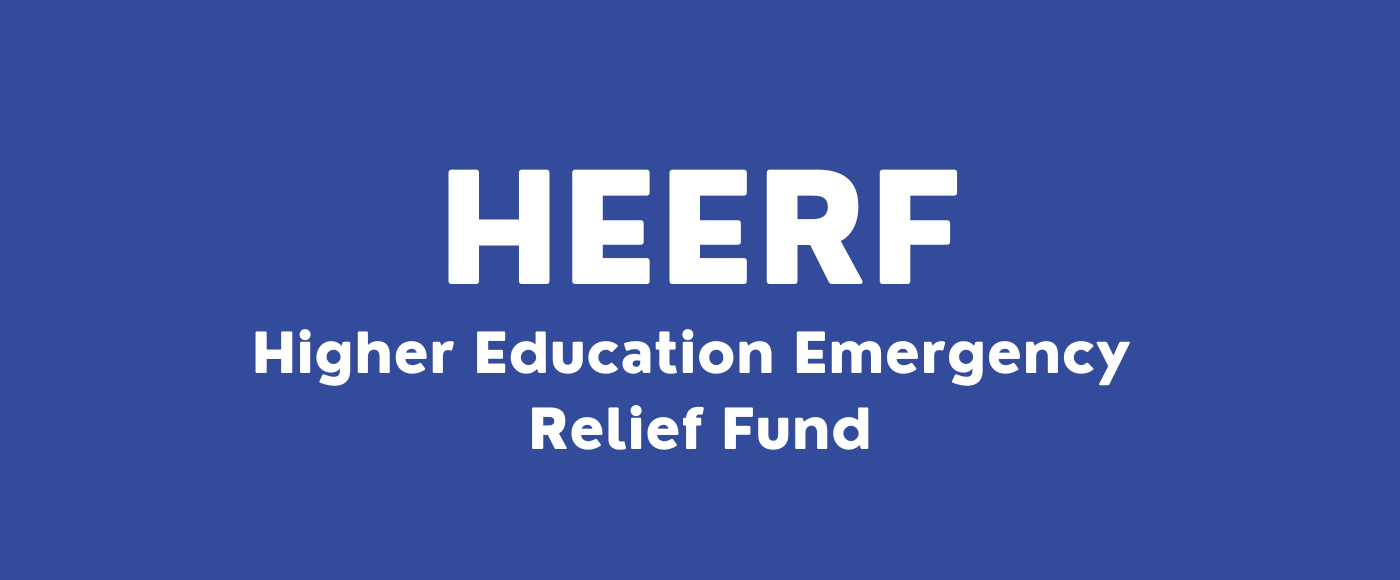Higher Education Emergency Relief Fund (HEERF) Reporting
The Coronavirus Aid, Relief, and Economic Security Act (“CARES Act”) Higher Education Emergency Relief Fund (HEERF) provides funding to students whose lives have been disrupted because of the coronavirus global pandemic.
The U.S. Department of Education made available emergency financial aid grants to students of institutions who need financial support for expenses related to the disruption of campus operations due to the COVID-19 outbreak, including things like course materials and technology, as well as food, housing, health care, and childcare.
Wongu University of Oriental Medicine submitted to the Department of Education an Agreement to receive HEERF funds of the CARES Act to provide Emergency Financial Aid funds to qualifying students under Section 484 in Title IV for the Higher Education Act of 1965.
Wongu University was granted $7,398.00 and has distributed $7,398.00 by July 1, 2020, to a total of 27 students. Student eligibility for receiving the funds was based on guidance from the U.S. Department of Education issued on April 21, 2020: to receive HEERF I student emergency grant funds, students must be eligible to receive Title IV federal financial aid (e.g., Pell Grant, Direct Loans, etc.) and have incurred additional expenses due to campus disruptions due to the COVID-19 global pandemic, such as food, housing, technology, course materials, health care, and childcare.
The funds were distributed evenly among all qualifying students.
HEERF III Grant
Financial Aid Professional Judgement
The American Rescue Plan (ARP) was signed on March 11, 2021 by President Biden to assist, prevent, and respond to the Covid-19 pandemic. This is the third funding with approximately $29.6 billion for the Higher Education Emergency Relief Fund. As part of this HEERF III funding, a provision was made requiring Financial Aid officials to conduct a direct outreach to financial aid applicants to inform them of the opportunity for a Professional Judgement Adjustment appeal to their FAFSA.
A Professional Judgement appeal allows an aid adjustment due to recent unemployment of a direct family member (mother or father) of a dependent student or the recent unemployment of an independent student, or other circumstances related to Covid-19. This is referring to any significant changes in 2021 or 2020 income compared to a student’s required 2019 tax data reported on their 2021/2022 FAFSA. No additional adjustment can be made on a student’s application with an EFC (Expected Family Contribution) of $0.
Other significant changes or circumstances that could be considered are:
- Loss of income due to disability effective in 2020 or 2021.
- Significant medical expenses in 2020 or 2021 from Covid-19 that are not covered by insurance.
- Loss of income due to shutdowns as a result from Covid-19 in 2020 or 2021.
If you believe you may qualify for a Professional Adjustment, please contact our Financial Aid Officer. All circumstances will be eligible for consideration, and not all appeals will result in additional aid assistance.
Quarterly Reports:
- Quarter Ending September 2020 Updated 07/2023
- Quarter Ending December 2020 Updated 07/2023
- Quarter Ending March 2021
- Quarter Ending March 2021 Update 07/2023
- Quarter Ending June 2021
- Quarter Ending June 2021 Update 07/2023
- Quarter Ending September 2021
- Quarter Ending September 2021 Update 07/2023
- Quarter Ending December 2021
- Quarter Ending December 2021 Update 07/2023
- Quarter Ending March 2022
- Quarter Ending March 2022 Update 07/2023
- Quarter Ending June 2022
- Quarter Ending June 2022 Update 07/2023
- Quarter Ending September 2022
- Quarter Ending September 2022 Update 07/2023
- Quarter Ending December 2022
- Quarter Ending December 2022 Update 07/2023
- Quarter Ending March 2023
- Quarter Ending March 2023 Update 07/2023
- Quarter Ending June 2023
